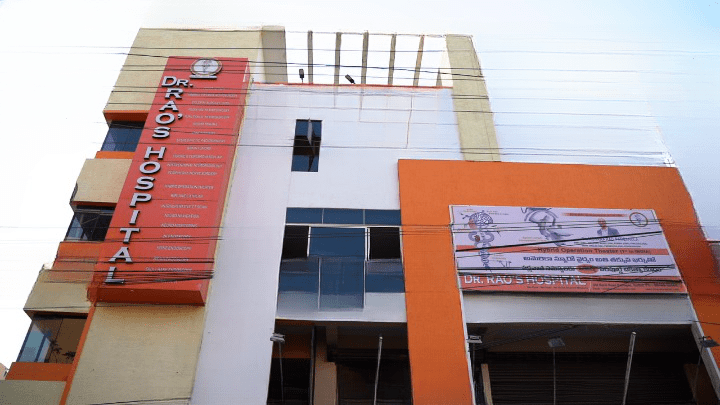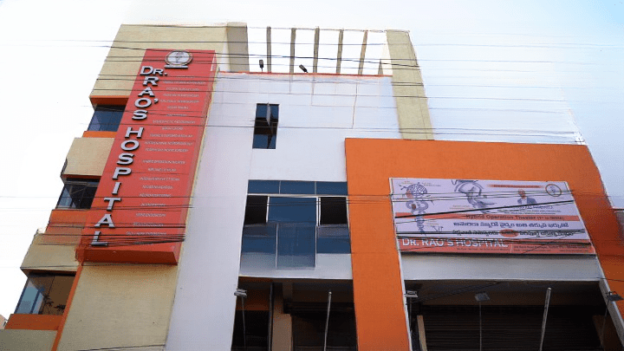Understanding Tourette Syndrome: Insights and Support from Dr. Rao’s Hospital
Tourette Syndrome (TS) is a neurological disorder characterized by repetitive, involuntary movements and vocalizations known as tics. It often begins in childhood and can significantly impact the quality of life. At Dr. Rao’s Hospital, we are committed to raising awareness, providing accurate information, and offering support to those affected by TS.
What is Tourette Syndrome?
Tourette syndrome (TS) is named after Dr. Georges Gilles de la Tourette, a French neurologist who first described the condition in 1885. It is part of a spectrum of tic disorders, which includes transient and chronic tic disorders. TS is characterized by motor tics (sudden, brief, repetitive movements) and vocal tics (unintentional sounds).
Symptoms and Diagnosis
The primary symptoms of Tourette Syndrome are tics, which can be classified as:
- Motor Tics: These include movements such as blinking, shrugging, head jerking, and facial grimacing.
- Vocal tics involve sounds such as throat clearing, grunting, or shouting.
Tics can vary in frequency and severity and may change over time. They frequently start with an uncomfortable feeling or urge that the tic temporarily alleviates.
Diagnosing Tourette syndrome involves a thorough clinical evaluation. According to the Diagnostic and Statistical Manual of Mental Disorders (DSM-5), a diagnosis is made when:
- Both motor and vocal tics are present, although not necessarily simultaneously.
- Tics occur several times daily, nearly every day, or intermittently for over a year.
- The onset of tics is before age 18.
- The symptoms are not due to medications or other medical conditions.
Causes and Risk Factors
The exact cause of Tourette Syndrome is not fully understood, but it is believed to involve a combination of genetic and environmental factors. Research suggests that abnormalities in certain brain regions, neurotransmitters (chemicals in the brain that transmit nerve impulses), and genetic mutations may contribute to the development of TS.
Family history also plays a role, as individuals with a family history of TS or other tic disorders are at a higher risk of developing the condition. Environmental factors, such as prenatal stress, infections, and complications during childbirth, may also influence the onset and severity of TS.
Living with Tourette Syndrome
While there is no cure for Tourette Syndrome, many individuals manage their symptoms effectively with a combination of behavioral therapy, medications, and support. Comprehensive Behavioral Intervention for Tics (CBIT) is a well-established therapy that helps individuals recognize the urge to tics and develop strategies to manage it.
Medications may be prescribed to reduce the frequency and intensity of tics, but they are usually considered when tics significantly interfere with daily functioning. Common medications include antipsychotics, antihypertensives, and medications that regulate neurotransmitter levels.
Support and Resources at Dr. Rao’s Hospital
At Dr. Rao’s Hospital, we understand the challenges faced by individuals with Tourette Syndrome and their families. Our multidisciplinary team includes neurologists, psychiatrists, psychologists, and speech therapists who work together to provide comprehensive care.
We offer:
- Diagnosis and Evaluation: Comprehensive assessments to accurately diagnose TS and other tic disorders.
- Personalized Treatment Plans: Tailored treatment plans may include behavioral therapy, medications, and supportive therapies.
- Support Groups: Opportunities for individuals with TS and their families to connect, share experiences, and gain emotional support.
- Education and Awareness: Resources and programs to educate the community about Tourette Syndrome, reduce stigma, and promote understanding.
Conclusion
Tourette syndrome is a complex condition that requires a nuanced and compassionate approach. At Dr. Rao’s Hospital, we are dedicated to providing the best possible care and support to individuals with TS. We want to improve the quality of life for those suffering from this condition by promoting understanding and raising awareness.
For more information or to schedule a consultation, please visit our website at Dr. Rao’s Hospital or call 9010056444. Together, we can make a difference in the lives of those living with Tourette syndrome.


